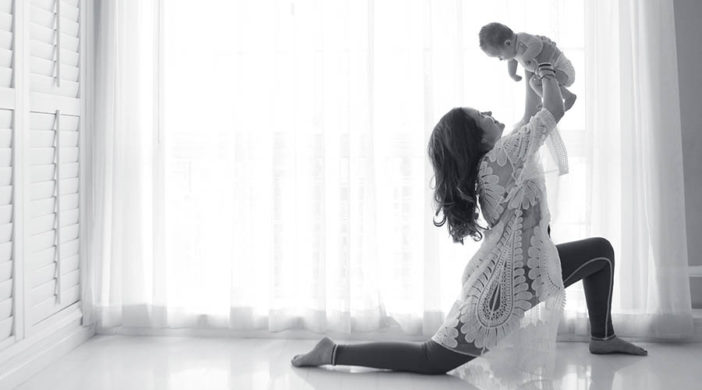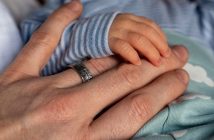FROM THE BEGINNING
We can imagine what you must be going through upon finding out that you are pregnant for the first time as an expat in a foreign land like Beijing. Even though you aren’t the first, and definitely not the last couple to go through this magical but challenging ordeal, we all know how hard it is doing quite basic things in China like paying your electricity bill or setting up a bank account. So having a baby is on an entirely different level. But what we can tell you is that, with a little bit of help and support from your Beijing community, producing your offspring here is totally doable, and we hope this will provide you with some of the basic knowledge of what to expect throughout the coming months.
First of all, we would like to go through some of the advantages of having a baby in Beijing. If there is one thing we’ve learned by going through this, it’s that there are definite benefits in the maternity process that you won’t find in other countries (ahem… the US) along with a massive amount of support and courtesy that goes far beyond just the relinquishing of a seat on public transportation. For instance, you can usually expect at least three months of paid maternity leave during your recovery, most of the time at least one week of paternity leave, and even multiple lactation breaks at work to collect milk for your baby. This, along with affordable help after the baby comes, makes that transition after your child’s arrival much more manageable. But we are getting ahead of ourselves. Let’s start from the beginning.
MOVING FORWARD
Chances are if you are reading this with a bun in the oven, or a dumpling in your basket, or whatever metaphor best suits your situation, you have already made an initial consultation to find out if your pregnancy test was indeed accurate. This is the essential first step and can be done easily at a local or international hospital, depending on the amount you wish to pay or the command you have over the Mandarin language. Most foreign couples opt for the international option, because it’s just much more familiar and a less foreboding experience, but keep in mind that these familiarities come at a price.
After you receive this verification, it is time start looking for the hospital which is best suited for your needs. The first factor you need to take into consideration is what you can afford, as this determines whether or not you should be looking at international or local care. We’re not going to sugarcoat this for you by claiming that local hospitals are easy, but it can be done and because having a baby is a very common procedure, these hospitals are more than capable. Despite this, they operate very differently from what we are accustomed to in the west. Often at the more popular hospitals, rooms and delivery dates have been booked very far in advance, especially in auspicious zodiac years (monkey, dragon, or snake) so it might also not be possible to go through with your delivery at a convenient hospital. This, combined with the fact that it isn’t very often that you have the luxury of a doctor or staff that speaks English, results in many foreigners going with a more costly international hospital.
That being said these hospitals are pricey for a reason, as many have very comfortable accommodations, decent food, English-speaking staff, and the necessary amount of privacy you would want during your labor and recovery. In fact, these places are almost designed to look like furnished hotel rooms, with private bathrooms and showers.
POPULAR INTERNATIONAL OB/GYNs IN BEIJING
Usually, before you decide on which hospital you would like to continue at, there will be a comprehensive tour of the facilities so that you will see exactly what you are paying for. If you want the big day to be at one of these international hospitals but the monthly checkups at a local hospital, to save some money, this is also an option. Below you will find a list of popular hospitals and their current going rate for prenatal consultations, exams, and delivery packages. Please note if you are reading this in the future, that prices are subject to change and these current prices are almost double what they were a decade ago; one of the perks of the two-child policy and a thriving economy we suppose.
Beijing United Family Hospital
This is likely the most luxurious option in Beijing’s birthing scene. With 20 years of service in Beijing and six other locations in China, they also have Joint Commission International (JCI) accreditation, which is a fancy way of saying that they are as good as it gets.
Prenatal Care: RMB 20,800
Delivery Price: RMB 66,000 (natural birth); RMB 88,000 (C-section)
Address: 2 Jiangtai Road, Chaoyang District. 朝阳区将台路2号 (5927 7000)
Amcare Women’s and Children’s Specialized Health
Operating in Beijing for 11 years, this hospital chain focused on women’s and children’s health currently has branches in four cities and offers excellent, modern facilities. This is a popular option due to the sheer convenience of their services, with three locations in Beijing alone.
Prenatal Care: RMB 18,977 (12 percent off if you book 4 months in advance)
Delivery Price: RMB 49,730; RMB 69,650 (C-section)
Lido Address: 9 Fangyuan Xilu, Chaoyang District. 朝阳区芳园西路9号 (6434 2399)
Yayuncun Address: Bldg 5 Anhui Beili Yiyuan Chaoyang District. 朝阳区朝阳区安慧北里逸园5号楼 (400 100 0016)
Wanliu Address: 7 Wanliu Zhonglu, Haidian District. 海淀区万柳中路7号 (400 100 0016)
Oasis International Hospital
First opened in 2012, and located near 798, this is a convenient medical center for families in the Wangjing or Shunyi areas. Also with JCI accreditation, you can expect top-notch modern facilities, with homelike private rooms and delivery suites that offer comfort, safety, and privacy for patients and their guests.
Prenatal Care: RMB 17,800
Delivery Price: RMB 42,800; RMB 68,800 (C-section)
Address: 9 Jiuxianqiao North Road, Chaoyang District. 朝阳区酒仙桥北路9号 (400 876 2747)
GlobalCare Women and Children’s Hospital
Offering a full range of medical services this hospital has been servicing Chaoyang District for 12 years. This hospital can also provide free health insurance consultations, as they feature direct billing relationships with many popular health insurance providers.
Prenatal Care: RMB 14,900
Delivery Price: RMB 36,800 (natural); RMB 49,800 (C-section)
Address: 24 Dawang Xilu, Chaoyang District. 朝阳区望路西大24号, 朝阳区 (8777 9299)
Antai Hospital
Founded in 2003, Beijing Antai Maternity Hospital is the first hospital in Beijing with a water birth center to allow natural births. The hospital also researches male and female infertility, recurrent miscarriage, endometriosis, and more.
Prenatal Care: RMB 11,800
Delivery Price: RMB 29,800; RMB 37,800 (C-section)
Address: Building 18, Court 1, Xingheyuan, Jiayuan Road, Fengtai District. 丰台区
北京丰台嘉园路星河城1号院18号楼 (6773 5551)

WHAT’S IN A PACKAGE
The package usually adds up to a total of 13 visits including all of the necessary laboratory tests, consultations, and physical examinations. If you can’t afford the full 13, there are also cheaper options consisting of five or ten visits. These consultations and exams usually begin after week 14 and continue in varying degrees of frequency throughout the term. From weeks 12-28 you can expect to visit about once every month. After week 30, you will begin to visit every two weeks, then at week 36, it will be every week until your due date. This all seems standard in comparison to other hospitals of an international standard around the globe.
On every visit, you will receive a series of tests including but not limited to urine and blood analysis, a 15-minute fetal doppler monitoring session of your baby’s heartbeat, and a check up from a physician, who usually explains some of the findings from your tests. The doctor will also provide prenatal counseling and general healthcare knowledge to make sure that you are making healthy decisions while your baby comes to term. Finally, the climax of your visit will no doubt be the obstetric ultrasound. These will usually take place at every other visit.
One of the most exciting parts of the prenatal process is the discovery of the baby’s sex. This is important for many families as it determines everything from the name to the color scheme of the bedroom or wardrobe. This being said, it isn’t always possible to gain this knowledge at a public Chinese hospital as it is technically against the law. More often than not for foreign couples at international hospitals, they will make a sly exception, so you can ask a little question like “ should we buy pants or dresses,” and they will likely let you know. It’s kind of fun and sneaky, so we like it. However, at a public hospital they make you sign a waiver that doesn’t allow you to know the sex.
Around the 34th week, you will also go through a mandatory birth rehearsal so that you are aware of the process of admitting yourself to the room and making sure that the hospital is ready for your arrival. It is also when they give you one last tour of the facilities so that you aren’t freaking out when the time comes to provide the right environment for your loved one in labor and you’ll know how and who to call for assistance if needed.
DON’T FORGET THE PAPER WORK
If you or your partner is not a Chinese national then you can skip this section, as all you need is your passport when you pay the hospital bills to get your baby’s birth certificate. For mixed or Chinese couples this was honestly one of the most frustrating parts of the process. It required a lot of running around to various community offices, all of which needed to be checked off a list to get final approval so that you can make sure your baby is legal under the various laws and restrictions of the People’s Republic of China. Also, while you could start prenatal care at an international hospital without these documents, the same can’t be said if you want to do so at a public hospital.
The main things you need to get your baby’s birth certificate are the IDs of both parents and Mother Child Health Brochure (母子健康档案 Mǔzǐ Jiànkāng Dǎng’àn), the latter being a nightmare to obtain. Getting married is an essential first step in making your half-Chinese, half-foreign baby legal. Following the marriage certificate, which by the way has its own lengthy list of requirements, you’ll need register at a couple of places in your neighborhood in order to receive this Mother Child Health Brochure. This requires an ID from both parents, a hukou from your Chinese spouse’s hometown, the marriage license, residence certificate, and finally proof from your hospital that you are with child.
You’ll find that the residence certificate is the most challenging of these tasks. To get this, you first go to the community center (居委会 jūwěihuì) nearest to your apartment. Here you will get an introduction letter (证明 zhèngmíng) to prove you are living in your apartment, and to get this, you’ll need your ID, contract for your apartment, and landlord’s ID. You will then bring this proof of residence to your local police station to get your residence certificate (居住证 jūzhù zhèng). Here you will fill out the “Residence Certificate Application Form” and hand it to the officer on duty with your ID, spouse’s hukou, proof of six months valid residence, your housing contract, and a passport photo. This will take a couple days to process, and then when you return they will give you a card that you can then bring to the community health center (社区卫生服务中心 – shèqū wèishēng fúwù zhōngxīn) to finally get your Mother Child Health Brochure. Please take note that this is different from the community center that you first had to visit. If this all sounds very complicated, that’s because it is and leaves many couples in a constant state of frustration until completed. But after you have this brochure you can be certain that your child will be legal when entering the world. What a relief!
BIRTH PLAN
The birth plan that you are given from the hospital doesn’t differ much from that of your native country, but there are a couple of things that must be taken into consideration due to the fact that you are having a child in Beijing. The first and sometimes most unpredictable can be Beijing’s notorious traffic. If you are one of many expats without access to your own means of transportation then it is essential to have this planned, as standing in the middle of the street hailing a taxi wouldn’t be ideal. We recommend car services like Didi, which now has an English interface, or Shǒuqì (首汽), which we like because every car has an air purifier installed. Since the latter is a government-owned company they maintain a certain level of cleanliness to every car, and usually the drivers are very polite. These are super convenient and you can find information on how to use them by going to our website (beijing-kids.com) and searching for Shǒuqì or Didi.
Other things that must be confirmed in your birth plan are your preferences when it comes to pain management and C-sections. You might not know this, but China has a higher rate of Caesarean births than any other country in the world. Over 50 percent of all babies are removed from the womb surgically. Not all of these were necessary, and possibly it’s more out of convenience from what we understand. Some say that it is administered liberally because it is the easiest method to get that little person out with minimal complications, and others think it’s just another billable service to be added when things get tallied up at the end. If anything this information should provide a little bit of comfort that if a C-section is needed, you have no need to worry.
The final thing to take into consideration is that if your due date happens to end up on a public holiday, you will encounter extra charges for the delivery or C-section. This is the case in many countries, but it might help to occasionally whisper to your baby to come out at an appropriate date so that you don’t need to worry about rustling up a doctor at an inconvenient time, and pay more than is necessary.
NOT SO LABORIOUS MATERNITY VOCAB
Finally, while being able to speak Chinese would definitely be a major help to couples having children in China for the first time, it is a challenging language to tackle especially when you have so many other preparations that need to be made when expecting. This is why we’ve compiled a list of necessary terms, that will hopefully make things a tad easier in days leading up to and on the big day itself.
— canal – 产道 [chǎndào]
— plan – 分娩计划 [fēnmiǎn jìhuà]
Breastfeed – 喂奶 [wèinǎi]
Breast milk – 母乳 [mǔrǔ]
Breast pump – 吸奶器 [xīnǎiqì]
Caesarean/C-section – 剖腹产 [pōufùchǎn] / 剖腹产术 [pōufùchǎn shù]
Circumcision – 割礼 [gēlǐ] / 包皮环切 [bāopí huánqiē]
Crowning – 儿头初露 [értóu chūlù]
Deliver vaginally – 顺产 [shùnchǎn] /自己生 [zìjǐ shēng] (common language)
Doctor – 医生 [yīshēng] / 大夫 [dàifu]
Due date – 预产期 [yùchǎnqī]
Emergency – 急诊 [jízhěn]
Epidural – 硬膜外麻醉 [yìng mó wài má zuì]
Exam/check-up – 检查 [jiǎnchá]
Fetus (8 weeks to 40+ weeks) – 胎儿 [tāi’ér]
Give birth (to a child) – 生孩子 [shēng háizi]
Hospital – 医院 [yīyuàn]
Morning sickness – 晨吐 [chén tǔ]
Movement (of baby) – 胎动 [tāidòng]
Natural delivery; no complications – 顺产 [shùnchǎn]
Normal (test result, etc…) – 正常 [zhèngcháng]
Nurse – 护士 [hùshi]
Obstetrical ward/maternity ward – 产科病房 [chǎnkē bìngfáng]
Pregnancy test (noun) – 试孕纸 [shìyùnzhǐ]
Pregnancy test (verb) – 怀孕试验 [huáiyùn shìyàn]
Pregnant – 怀孕 [huáiyùn]
Premature labor – 早产 [zǎochǎn]
Ultrasound – B超 [Bchāo] (common) / 超声波 [chāoshēngbō] (formal)
Water broke; amniotic fluid/water (to naturally break) – 羊水破了 [yángshuǐ pòle]





